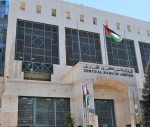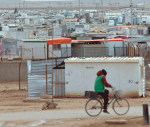You are here
Not legislative change alone
Apr 27,2017 - Last updated at Apr 27,2017
The Jordanian organisation Arab Renaissance for Democracy and Development (ARDD) welcomes the long-awaited move by the Cabinet to remove Article 308 of the Penal Code.
In its current form, Article 308 stipulates that rapists are spared punishment or legal prosecution if they marry their victims and stay with them for five years.
The removal of Article 308 means that such crimes can undergo proper investigation, prosecution and punishment of perpetrators, which is a great step forward.
However, ARDD believes that legislative change alone does not translate into change in community traditions and customs, especially those that are deeply rooted.
Unless legislation is accompanied by coordinated sensitisation campaigns that focus on addressing the root causes of (sexual) violence against women, the community will continue to seek collective justice to restore the “honour” and “public ethics” and disregard the rights of victims.
To this end, the Jordanian legislative perspective has to acknowledge the individual victim as the primary subject who holds the right to justice, safety and support.
Jordan must adopt this perspective in order to live up to international standards regarding victims’ rights.
Furthermore, it is crucial that Jordanian legislation aligns its definition of rape to the one internationally recognised, as “sexual intercourse without consent with coercion irrespective of marital status, and recognised as a severe violation of the individual survivor’s bodily integrity and sexual autonomy” (World Health Organisation).
In Jordan’s case, this would also entail recognising that consensual sexual intercourse out of marriage and adultery do not amount to rape, and that marital status, public ethics, honour, adultery, seduction or deception are irrelevant categories/circumstances when defining rape.
ARDD highly encourages legislators to go further than just scraping Article 308 and ensure the protection and support for survivors of sexual violence.
Therefore, ARDD pleads for the initiation of institutionalised gender-sensitive training programmes and capacity-building programmes on violence against women, and on the new legislation for police and judicial officials.
Second, a specialised prosecutor’s unit and a specialised police unit on violence against women should be established.
Survivors must have the option of communicating with female police officers or prosecutors.
Although a long advocate against Article 308, ARDD believes that its removal specifically creates issues for survivors of rape who bear a child.
By law, a child born out of wedlock cannot be registered, is not recognised by the state and the government can forcibly remove the child from the mother.
This may create a situation where women who were raped, or had a child out of wedlock, will marry the man simply to ensure that the child can be registered, gain nationality and other associated rights, to avoid her child becoming “illegitimate”.
To amend this discrimination and to ensure that in practice mothers are not forced to marry their rapists to give their children rights, the government must remove provisions contained in the Personal Status Law and other laws to ensure that women, regardless of marital status, have rights equal to men and can pass them on to their children.
The government should also make sure that no provisions in the Constitution or the Personal Status Law shall discourage a survivor, irrespective of marital status, from reporting a crime of rape.
ARDD Legal Aid sees the need to demand legal and legislative alternatives that handle problems related to sexual abuse and to ensure that survivors of sexual abuse can access their human rights.
The writer is general director of ARDD. She contributed this article to The Jordan Times.












